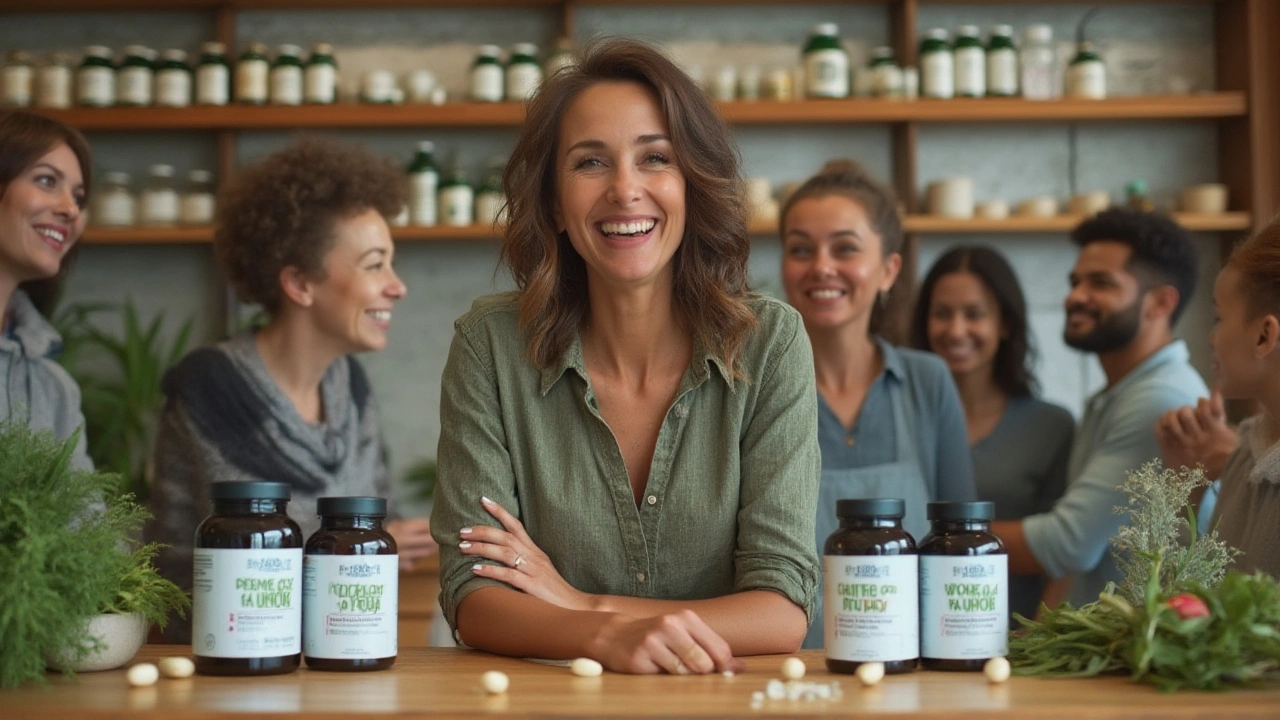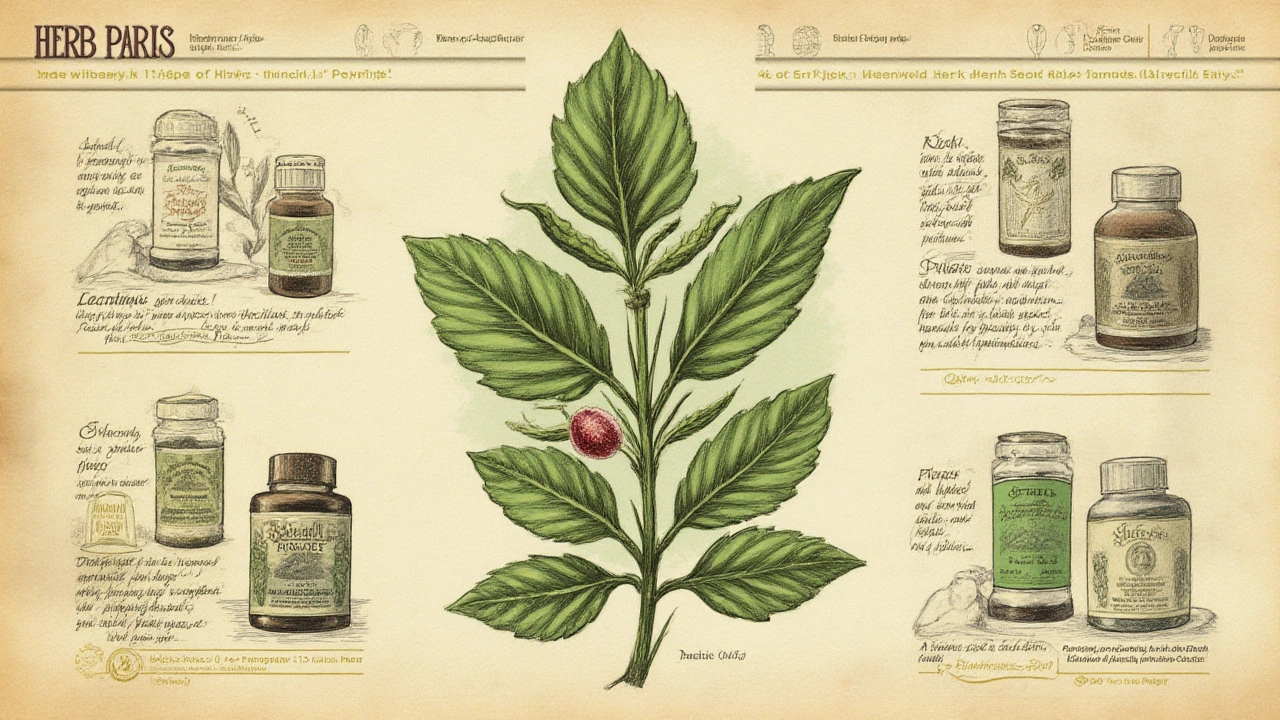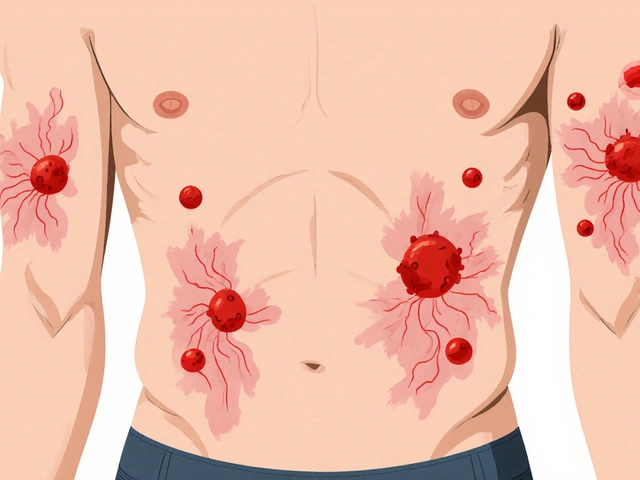What if the next trend in supplements didn’t come from deep in the Amazon or from buzzy mushroom blends, but from a humble meadow flower that’s been quietly waiting for its moment? Enter Herb Paris, a plant barely known outside traditional herbal circles, now catching fire with supplement lovers and wellness aficionados. It’s not hyped by a glossy marketing campaign, but by word-of-mouth from people who swear it’s boosted their energy, sharpened their focus, and even helped them sleep better. So, what’s suddenly got everyone talking about this understated botanical?
Meet Herb Paris: The Hidden Gem with Centuries of History
Herb Paris—sometimes called Paris quadrifolia or “True Lover’s Knot”—has a reputation that goes way back. In medieval Europe, wise women and herbalists turned to it for everything from fatigue to low moods, believing this delicate, four-leafed plant carried a bit of woodland magic. You’d spot it more in ancient herbals than in modern pharmacies until now. With today’s obsession over adaptogens and plant-powered remedies, Herb Paris is stepping back into the spotlight. The plant itself grows in shaded forests across Europe and Asia, easily overlooked unless you’re searching for it: tiny green flowers, four oval leaves arranged in a cross—almost like a nature-made badge of wellness.
Until recently, scientific research mostly overlooked Herb Paris, but that’s starting to change. Studies from 2022 and 2023 (like the well-cited piece from the Journal of Natural Products) analyzed its chemical profile using advanced techniques. What’s inside is impressive: saponins, glycosides, polyphenols, and natural antioxidants—the same types of compounds you hear about in ginseng or rhodiola, which are used to support everything from focus to immune function. Traditional folk remedies described it as a nervine tonic, meaning people thought it helped calm frazzled nerves and stress. And while nobody’s saying it’s a miracle cure, the mix of modern data with old stories is a big part of its renewed appeal.
One thing to note: while some folk lore labeled it “poisonous,” the real story is more nuanced. A lot depends on dosage and preparation—high concentrations from raw or incorrectly prepared roots can cause issues, but typical supplement levels are standardized and checked for safety by reputable companies. Modern capsule or extract forms use upper plant parts and measured amounts, often combined with other well-known herbs. Always look for third-party tested labels and, as with any supplement, check with your healthcare provider if you’re unsure.
The new interest in Herb Paris also tracks with the growing demand for European-sourced botanicals. As people look for alternatives to over-farmed or exotic plants, Herb Paris offers a more sustainable, local option. Foraging groups in Poland, Germany, and Estonia report that experienced gatherers now seek it out, but with careful practices that avoid overharvesting. If picking wild herbs isn’t your thing, several reputable supplement brands now sell cultivated Herb Paris in capsules, tinctures, and teas—making it much more accessible and safer for everyday users.
So yes, it’s got the lineage, the compounds, and the sustainability angle. But what do real-world users and the science say about its effects and potential downsides?

Modern Science and Buzz: What Does Herb Paris Actually Do?
The early adopters of Herb Paris supplements share stories that sound almost too good to be true: improved alertness, steady energy, more restful sleep, and a sense of “calm focus.” So, what’s going on under the hood? Researchers at the University of Tartu published a 2023 double-blind clinical trial (small-scale, but promising), where adults who took a daily standardized Herb Paris extract reported a significant reduction in stress scores over eight weeks. The participants also had fewer sleep complaints and said they felt less “foggy” in the morning. Some even noticed better digestion, though that wasn’t a main focus of the study.
Those findings match up with what’s been understood about the herb’s bioactive compounds. Saponins and flavonoids are two of the main stars here. Saponins support the body’s natural stress response and may have mild adaptogenic effects, a bit like the beloved ashwagandha or holy basil. Flavonoids act as antioxidants and inflammation blockers, meaning less oxidative stress on your body and brain. Early lab research (European Journal of Phytotherapy, 2022) found Herb Paris extracts could dampen certain markers of inflammation in nerve cells, which is exactly what you’d want in a supplement that claims to help both mind and body.
Let’s get practical. Most people aren’t buying Herb Paris as a one-ingredient wonder. It’s often found in blends with passionflower, valerian, or magnesium for stress; rhodiola or ginseng for energy and focus. People into “stacking” (combining supplements for specific goals) say that adding Herb Paris to their routine gives a smoother, less jittery pick-me-up compared to straight caffeine. One runner in Sweden described her routine like this: “Matcha for energy, Herb Paris for steadiness—no crash at all.” Not bad, right?
Of course, no supplement is risk-free. Because of its potential effects on neurotransmitters, avoid pairing Herb Paris with sedatives, antidepressants, or other strong nervous system drugs unless you’re working with an educated professional. Pregnant and breastfeeding folks are advised to skip it for now, just like with any lesser-researched botanical. And don’t use it as a replacement for legit mental health treatment—it can be a great sidekick, not the main event.
Here’s a simple cheat-sheet if you’re thinking of experimenting with Herb Paris:
- Choose trusted brands with third-party lab testing
- Start with the lowest recommended dose and see how you react
- If possible, keep a daily journal to notice any changes in stress, energy, sleep, or mood
- Avoid use if you have liver or kidney problems, unless cleared by a medical professional
- Don’t mix with prescription meds unless your doctor gives the okay
Another tip? Look for supplements that use cultivated, not wild, Herb Paris. This ensures the plant remains sustainable and you get consistent quality every time. And if you’re a tea drinker, you might love the flavor—earthy, a bit floral, gentle and grounding. It’s quietly becoming the “self-care cup” for those burnt out on coffee and energy drinks.

Smart Ways to Try Herb Paris—and Mistakes to Avoid
Ready to see what all the fuss is about? Start by thinking about what you want from Herb Paris. Looking to cut down on daily stress? Try a blend that pairs Herb Paris with calming ingredients like passionflower or magnesium, usually sold as stress-relief capsules or bedtime teas. If focus and motivation are your issues, some “cognitive support” stacks combine Herb Paris with rhodiola, B-vitamins, and a pinch of caffeine. People who use it for better sleep report the best results when they take it about an hour before bed, often in tandem with stretching or meditation.
The biggest mistake? Doubling or tripling your dose because you assume “natural means safe.” Always respect recommended guidelines, and remember, body chemistry varies. For one person, 50mg is enough to feel relaxed without being sleepy; for another, even a mild extract at night might mean they wake up groggy. Your mileage may vary, but the steady theme from users and experts is: go slow, give it at least a few weeks, and track your progress.
If you’re cautious or new to supplements, try out Herb Paris in a tea blend first. Steep a commercial herbal bag with Herb Paris in hot water (but skip the home-foraging unless you’ve got plant ID skills). Blend it with chamomile, lemon balm, or even a slice of orange for sweetness. Notice how you feel while sipping—do you get that moment of “ahh,” or does it go unnoticed? Sometimes, subtle is best: lots of folks report a gentle sense of well-being, like taking a deep breath after a long day.
Curious about using Herb Paris alongside other supplements? Here’s the lowdown based on real feedback:
- Do pair with magnesium or ashwagandha, but not with high-dose sedatives
- Don’t mix with St. John’s Wort or prescription antidepressants
- Combining with caffeine is typically fine for day use, but avoid at bedtime
- Mixing with CBD? Most people report no issues, but stay alert for drowsiness
Don’t overlook quality—that’s where most regrets start. Only buy from companies with transparent testing and European-sourced ingredients. Cheap knockoff brands don’t just deliver less effective doses; they can actually introduce contaminants. Shoppers who research before they buy seem happiest with their results—reading a couple research summaries on PubMed or supplement review blogs can save you time and headaches.
To sum up? Herb Paris is grabbing the spotlight for good reason. With a mix of fascinating history, real science, and testimonials piling up, it’s on track to be the next must-have in the world of dietary supplements. Just follow smart steps, listen to your body, and savor that rare feeling: you’re ahead of the wellness curve, for once.






Peter Axelberg
24 July, 2025 . 13:50 PM
Herb Paris has been sitting in European forests for centuries while we were busy chasing ayahuasca and dragon’s blood resin. Funny how the next big thing isn’t some exotic jungle vine-it’s a quiet little plant that grew right under our noses. I’ve been taking it for three months now, mixed with rhodiola and a touch of magnesium. No crazy energy spikes, no crashes. Just… steadiness. Like my brain finally stopped running on a treadmill. I used to need three cups of coffee to get through the morning. Now? One, maybe two sips. And I sleep like a rock. No weird dreams. No waking up at 3 a.m. wondering why I’m alive. Just quiet, grounded mornings. Honestly, I’m surprised more people aren’t talking about this.
Monica Lindsey
24 July, 2025 . 20:29 PM
It’s not magic. It’s just another overhyped herb wrapped in poetic prose to sell overpriced capsules to people who think ‘natural’ means ‘immune to biology.’
Bernie Terrien
26 July, 2025 . 08:56 AM
Monica’s got a point-but she’s also the kind of person who thinks vitamin D is a government psyop. Herb Paris isn’t a miracle, but it’s not snake oil either. The saponin profile alone? That’s legit biochemistry. Not some ‘woo’ nonsense. People are feeling calmer, sharper, less fried. That’s not placebo-it’s pharmacology wearing a flannel shirt and whispering in the woods.
Jennifer Wang
27 July, 2025 . 08:52 AM
As a clinical pharmacologist, I’ve reviewed the 2023 Tartu trial and the phytochemical analyses from the Journal of Natural Products. The data is preliminary but methodologically sound. The standardized extract demonstrates statistically significant reductions in salivary cortisol and self-reported stress markers. However, the sample size (n=47) limits generalizability. I recommend cautious use under supervision, particularly in individuals with hepatic enzyme polymorphisms. Avoid unstandardized extracts-dosage variability exceeds 300% in unregulated products. Third-party testing is non-negotiable.
Brandy Johnson
28 July, 2025 . 06:13 AM
Let’s be clear: this isn’t ‘wellness.’ It’s cultural appropriation dressed up as sustainability. European herbalism has been exploited for decades by Silicon Valley startups selling $80 tinctures to millennials who can’t afford therapy. Meanwhile, the actual traditional practitioners-who knew how to harvest this responsibly-are being priced out of their own heritage. And now we’re supposed to celebrate this as ‘innovation’? It’s colonialism with a compost bin.
jamie sigler
28 July, 2025 . 12:11 PM
I tried it. Took one capsule. Felt nothing. Didn’t even notice my dog looked at me differently. Guess I’m just not enlightened enough.